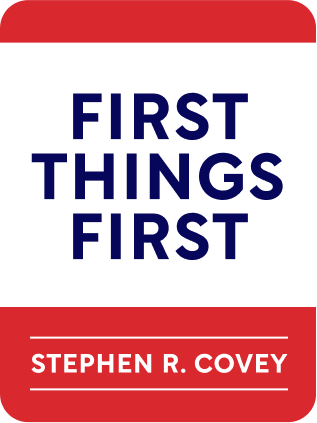

This article is an excerpt from the Shortform book guide to "First Things First" by Stephen R. Covey. Shortform has the world's best summaries and analyses of books you should be reading.
Like this article? Sign up for a free trial here .
Do you plan your week in advance or go with the flow? Why is it important to plan your week in advance?
When you plan your week in advance, you are engaging in an act of self-renewal. This dedicated time gives you the opportunity to put things into perspective and reconnect with your priorities.
Keep reading to learn how to plan your week in advance.
Plan Your Week for Balanced Renewal
Weekly planning is a balanced compromise between daily and long-term planning. It connects a bigger-picture perspective with day-to-day actionables.
A week encompasses a natural balance of life: It includes work or school days, evenings, and weekends. This lens is broad enough to incorporate self-renewal on a weekly and daily basis.
Weekly Self-Renewal
As you plan your week through the Quadrant II organizing process, you can proactively schedule in rest and renewal time that is genuinely rejuvenating.
Many people fall into the trap of getting so burnt out that they escape to Quadrant IV activities (which are neither urgent nor important) to rest, but the effect is the same as munching on potato chips when you’re hungry — it only temporarily satiates you and doesn’t truly satisfy your need. True rest and renewal is a Quadrant II activity because it is important and necessary for your well-being.
Quadrant II renewal activities include:
- Investing quality time in your important relationships with family and friends.
- Participating in religious activities, which keep you connected with your values.
- Renewing your energy through rest and recreational activities.
- Giving an outlet to your talents through devoting time to your interests and hobbies.
- Performing community service.
When you plan your week in advance, you are engaging in an act of renewal. This dedicated time gives you the opportunity to refresh your awareness of your basic needs and principles, reconnect with your four human endowments, recommit to your vision and goals, and maintain balance among your roles.
Daily Self-Renewal
When you’re looking at the scope of a week, you can plan time for daily renewal in a way that’s balanced and maximizes the benefits in your life.
Daily planning can cause you to subdivide time in chunks that are too small. If you have four priorities of exercise, quality time with your children, reading, and meditation, daily planning might lead you to divide your hour of renewal into 15 minutes for each of these activities. However, you’ll feel greater benefits in every area if you can devote more time to each activity — how much of a sweat can you work up in 15 minutes? How deeply can you dive into your meditation in only 15 minutes?
Weekly planning lets you take a broader view so that over the course of the week you can devote the same amount of time to each activity, but not do every one each day. Instead, you can exercise for 45 minutes a day on three days, spend an hour with your children on two days, and read and meditate for half an hour each on the other two days.
Plan Your Week to Access Whole-Parts-Whole Perspective
Choosing the lens of a week is all about balancing the big picture and the details. Your mission statement provides the “whole,” or the big picture, while the daily and weekly time management addresses the “parts,” your roles and goals. If you get too caught up in the whole you lose focus, but if you get lost in the parts, your life becomes compartmentalized and fragmented. In order to maintain perspective, you start with the whole, the big picture, zoom into the parts, the weekly and daily goals, and then zoom out again to the whole.
It’s critical that you are constantly aware of how the whole and the parts are connected, and that each part of life is interrelated; each of your roles represents a part of who you are, and each one impacts the others. The whole-parts-whole view helps you keep in perspective how everything is interconnected, allowing you to create synergy among your roles and goals rather than weakening your power in each by creating barriers among them.
Create Synergy Among Your Goals
Synergy is the concept that a whole is greater than the sum of its parts; for example, two pieces of wood joined together can hold more weight than each could separately. Similarly, if you combine activities to accomplish two goals at once, you can achieve more than if you’d dealt with each separately.
If today’s goals include exercising and spending quality time with your son, why not invite your son on a walk or to play a game of tennis with you? You’ll address two goals — in two different roles — at once and end up with more time in your day for other things. Plus, you may find that your son really enjoys tennis and you’ve now found a new activity you can do together.

———End of Preview———
Like what you just read? Read the rest of the world's best book summary and analysis of Stephen R. Covey's "First Things First" at Shortform .
Here's what you'll find in our full First Things First summary :
- How to work effectively, not just efficiently
- Why you need to think more about what you're spending time on than how much time you're spending
- The 6 steps to effectively schedule and prioritize important activities






